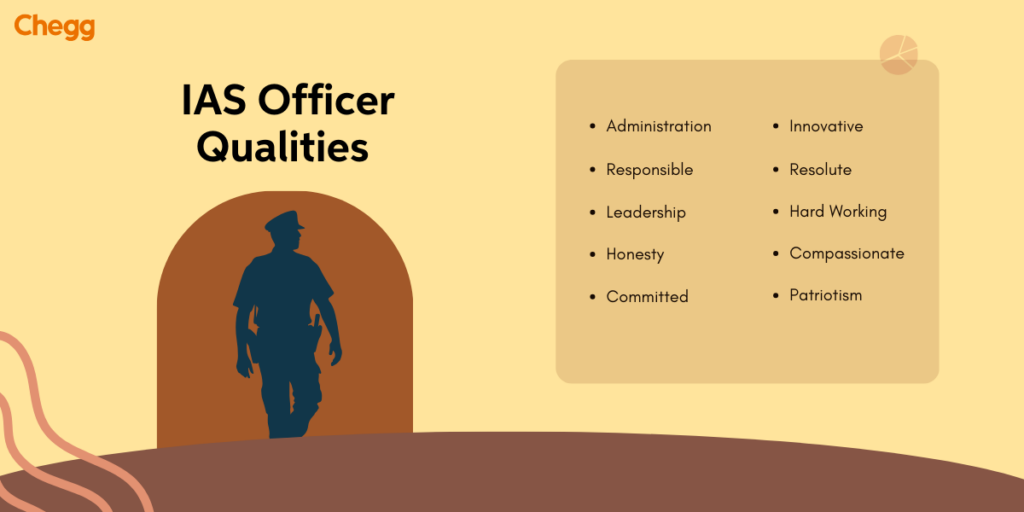

Quick Summary
The Indian Administrative Service (IAS) is a prestigious government position responsible for executing policies, maintaining law and order, and enhancing public services. IAS officers play a vital role in India’s governance, managing government functions across various ministries. The UPSC conducts the Civil Services Examination annually to select candidates for this role. With attractive salaries and benefits, the IAS remains a top career choice for many aspiring youth in India.
IAS full form is Indian Administrative Service. The role of an IAS officer is important to India’s government and management. An IAS officer is a well-respected government officer in India. The IAS officer’s power and duties are responsible for putting government policies and programs into action. The IAS work is to maintain law and order, improve public services, and positively change our communities. They run the administrative side of things in different government offices and ministries in India.
The UPSC holds the Civil Services Examination every year to find new officers for the IAS. The IAS was set up in 1946. They manage and execute government policies and programs that benefit the public. These officers are like the backbone of governance, ensuring things run smoothly and efficiently. An IAS officer’s salary and benefits make it a popular career choice among youth. This blog will discuss the role of an IAS officer.
Many young people want to become IAS officers, but with a job comes tasks and responsibilities. Your question about, what is the role of an IAS officer is answered here.
The role of an IAS officer includes implementing government policies, managing administrative functions, overseeing development programs, and ensuring public welfare. They handle law and order, address public grievances, and contribute to crisis management and policy advice. Their work involves strategic planning, coordinating with other agencies, and ensuring efficient governance and delivery of services to the public.
The main role of an IAS officer is listed as follows:

The common role of an IAS officer & duties are discussed as follows:
IAS officers in charge of a sub-division are called sub-divisional magistrates. The role of an IAS officer in this position is to keep the rules and the peace. It is also their job to monitor the general growth and handle administrative issues under their authority.
For example, implementing government policies effectively can be an administrative challenge. IAS officers need to ensure that policies and programs are implemented as intended. They also have to monitor progress and address any issues during implementation.
The next step in an IAS officer’s job is becoming the District Magistrate, District Collector, or Deputy Commissioner. Their jobs are still the same as at the sub-divisional level.
However, Their main IAS job profile is ensuring policies are carried out, supervised, and watched. They must also handle the administrative and growth work.
IAS officers are moved up to run things at the state level. They could also work as an IAS officer as a bureaucrat in a state office. They can also run departments as department heads. At this point, their understanding of the field comes in handy.
Your role as an IAS officer works in a government-owned Public Sector Undertaking in a high-level administrative role. IAS officers can hold key positions to oversee and regulate PSUs. They may be involved in policy-making, decision-making, and monitoring of the performance of PSUs.
This is a major position and great IAS officer work. They can serve as Cabinet Secretary, Secretary, Additional Secretary, Joint Secretary, Director, Deputy Secretary, or Under Secretary.
Now, the question arises: What is the role of an IAS officer in society? An IAS officer is in charge of keeping the peace, collecting taxes, and running the place they are assigned to.
Some of the main IAS officer work or responsibilities are:

The role of an IAS officer is to make, carry out, and oversee government-controlled policies. Laws like the Essential Commodities Act, the Drug Licenses Act, and the Arms Act allow IAS officers to implement rules in various situations.
These are the main laws that deal with IAS officer powers and duties. There are nearly 300 laws that describe IAS powers on a case-by-case basis.
IAS Officers get a great job because of how hard they work and how well they plan. The training they get at LBSNAA (Lal Bahadur Shastri National Academy of Administration) is the first step in their lives. They move up to positions with more responsibility. Here, we give a chronological order of posts of IAS officers after clearing the exams:
Here are more details about the IAS working hours for the LBSNAA IAS. This program lasts two years and has many parts, such as a groundwork course, phase 1 training, Bharat darshan, and others.
Everyone who wants to become a Grade A officer is recommended to take a three-month course at LBSNAA.
During their 15 weeks of training, candidates go on a Bharat Darshan tour to learn about India’s many different cultures. All of the IAS Officers are split into smaller groups for this tour.
IAS officers join a district administration for a year to learn its policies, programs, and administrative structure.
Officers discuss phase 1 training with coworkers. IAS officers can discuss their opinions, discover common ground, and learn through these forums.
After training, IAS worked under the joint secretary for a few months in their departments.
The starting basic pay for entry-level IAS officers is Rs. 56,100, with additional allowances such as Dearness Allowance (DA), House Rent Allowance (HRA), and Travel Allowance (TA). Salaries increase with experience. The basic pay for a Cabinet Secretary is set at Rs. 2,50,000.
The commission established a new Pay Matrix system featuring 18 horizontal levels to handle pay fixation for MACP or promotions. Each level also includes a vertical range for annual increment-based pay adjustments. For more details, you can refer to the 7th Pay Commission Report PDF.
HRA rates of 24%, 16%, and 8% have been proposed for X, Y, and Z-class cities, respectively. The 7th Pay Commission also recommended increasing HRA when DA surpasses 50% and 100%. In terms of Transport Allowance, there is no increase, and DA at 125% has been merged with the existing Transport Allowance.
The 7th Pay Commission has eliminated the previous Pay Band – Grade Pay System.
The role of an IAS officer brings you many benefits:
IAS is a job with the All India Service. You might always think, what is the role of an IAS officer in making changes? By becoming an IAS member, a person can help people. It is a secure job with a lot of perks and benefits.
Despite the challenges they face, the Role of an IAS Officer is pivotal in ensuring effective governance and positively impacting society. Highly respected, their dedication and expertise drive the country’s progress and development. Aspiring IAS officers must be prepared for hard work, continuous learning, and a strong commitment to serving the nation.
Evaluate numerous career choices to choose the right career path for yourself. Dive into our guide on Career Advice.
Ans.1. The Role is to carry out the policies that the ministers have planned.
2. They must get to the office and read the staff’s daily report.
3. They have to go to the places where the rules must be implemented.
Ans. IAS officer’s salary in India ranges from ₹56,100 to ₹2,50,000 per month, depending on their rank and experience. This includes basic pay along with various allowances such as house rent, travel, and medical benefits.
Ans. The duties of an IAS Officer are in policymaking, implementing government programs, and ensuring effective district, state, and central governance.
Ans. The main power of an IAS officer lies in their authority to implement government policies, manage administrative functions, and oversee public welfare programs, making crucial decisions that impact governance and development at various levels.
Ans. The state or central government controls IAS officers through their respective administrative departments. They are accountable to senior officers, including the Chief Secretary, the Chief Minister or Governor (at the state level), and central ministries or departments.
Ans. The most powerful job of the IAS is Cabinet Secretary. The Cabinet Secretary is the top-most executive official and serves as the head of the Indian Administrative Service. They act as the chief advisor to the Prime Minister and coordinate between various ministries and departments of the government.

Authored by, Amay Mathur | Senior Editor




Amay Mathur is a business news reporter at Chegg.com. He previously worked for PCMag, Business Insider, The Messenger, and ZDNET as a reporter and copyeditor. His areas of coverage encompass tech, business, strategy, finance, and even space. He is a Columbia University graduate.
Editor's Recommendations
Chegg India does not ask for money to offer any opportunity with the company. We request you to be vigilant before sharing your personal and financial information with any third party. Beware of fraudulent activities claiming affiliation with our company and promising monetary rewards or benefits. Chegg India shall not be responsible for any losses resulting from such activities.
Chegg India does not ask for money to offer any opportunity with the company. We request you to be vigilant before sharing your personal and financial information with any third party. Beware of fraudulent activities claiming affiliation with our company and promising monetary rewards or benefits. Chegg India shall not be responsible for any losses resulting from such activities.